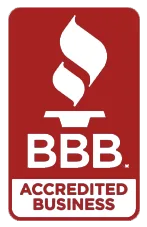The Complete Guide to Rental Property Investment
This guide to investing in rental properties is aimed to give both first-time investors and experienced investors relevant and up-to-date information about all the things you need to know before buying a property for rental. This includes how to find a rental investment property, how to finance an investment rental, property management services for rental investments, and more.
This guide to investing in rental properties is aimed to give both first-time investors and experienced investors relevant and up-to-date information about all the things you need to know before buying a property for rental. This includes how to find a rental investment property, how to finance an investment rental, property management services for rental investments, and more.
If you are considering investing in rental property, then you’re not alone! At the beginning of the year, interest in buying an investment rental property starts to spike. As a real estate business with a trusted heritage in the San Antonio area, we’ve already helped so many of our clients through this process, and we’ll be here to help you too.
An Introduction to Getting Started with Rental Property Investments
Is rental property a good investment?
We’re not going to begin this guide by telling you rental investments are easy, but with due diligence and a little dedication, they can yield great returns and can also be quite enjoyable at times too. For most, financial freedom is the ultimate goal. Some of the other benefits include leverage, depreciation, cash flow, appreciation, and tax advantages.
Making the decision to get started with rental property investing is personal, and it’s essential to make sure you are 100% certain of the reasons behind your choice.
A local property manager can be a great first port of call as they often have a deep understanding of the local rental investment market, and if all goes well, they could end up managing your investment property too.
How to find a good rental investment property
Searching for a suitable investment property isn’t always easy, but with the right guidance and a little help from a local property management company, you can still get great deals that offer attractive returns. Here are a few tips about how to find a good investment property. If you are looking for investment property in San Antonio, Red Wagon Properties is here to help!
Take personal emotion out of the equation
This is where some first-time investors can become a little unstuck. If you’ve ever purchased a property for yourself, you will have probably taken your time to find the “perfect” property. However, with a rental investment, things are a little bit different. Make sure you keep in mind that this is a business decision, and use facts, figures, and expert guidance to help you decide which property is best.
Make sure you understand the local rental demographics
This is another huge advantage of working with a local property management company. Before you choose the best type of investment property, you want to have a clear understanding of the rental demographics in the area(s) you are looking at. For instance, if you are buying a property near a college or university, then you would expect there to be far greater demand for student properties. Similarly, if you are considering purchasing an investment property in an area with great schools and parks, then you might find there is a greater demand for family homes.
If you deal with a local property management company, you’ll be able to get a firm grasp on the demographics of the area, and this should help you narrow down what type of investment property is in demand in your chosen area.
Don’t depend on future market changes for profits
A good rental investment starts with an informed purchase. Although nobody can really understand what is going to happen with the property market in the future, you need to ensure that you don’t overpay for your property.
Appreciation needs to be a “nice to have” rather than a necessity in order to turn a profit. Buying smart is all about doing your research, knowing your budget, and having a good understanding of the local rental market. If the only way you are going to be able to make money on your investment is by speculating and hoping the market will swing upwards in your favor, it probably isn’t going to be the best type of rental investment property.
Make sure you review local amenities and research any future developments
One of the most critical aspects of buying a good rental property is the local amenities. We spoke about this when we covered renter demographics, but it warrants its own section in this guide. If you want to get long-term equity growth, then you need to buy a rental property in the right area. In terms of classifying what makes a “good area,” we mean things such as having good transportation links, being close to major roads, and good local schooling options.
One way you can get an advantage is by looking at any planned developments, as a new school or mall that is going ahead may help to improve the appeal of an area and help drive up rental demand. This is another area where a local property management firm could help as they are often aware of these developments and have vital local insights they can share.
Make a list of your selection criteria
Having a detailed list of your selection criteria is a great way to keep you on track and to help you stay focused. Real estate investing has so many strategies and niches, and because of this, it’s easy to get taken off course. A clear set of priorities can also help you more easily define your preferences and narrow down the choices in a logical way.
Everybody has their own priorities, but here is a list of some of the most common criteria;
- Locality
- Amenities
- Size of the lot
- Property size
- Cap rate
- Cash flow
- The potential for appreciation
- Property condition – repairs needed or ready to rent
As a major financial purchase, deciding on the best type of rental investment property to buy isn’t a decision that should be taken lightly, nor should it be done without professional assistance. Using a real estate agent can help you gain a deep understanding of the rental market property, as they have some of the most reliable data points and connections with the local rental market, along with being able to potentially provide you with property marketing, tenant sourcing, and property management services once you’re ready to rent your property out.
Financing a Rental Investment Property
Finding a great property for a rental investment can be challenging enough. Once you have chosen the best apartment or house to buy for investment reasons, you need to select the best way to finance your venture. With the right planning and advice, financing a rental investment is possible, and there are lots of ways you can do this.
Making a sizable down payment is always going to work in your favor, having a good credit profile is also crucial. Here are some practical tips for investment property financing.
Use a local broker or bank
In some cases, using a local financing institution might be better than a national organization. They often have a greater level of flexibility and have a vested interest in the local market. A mortgage broker may also be able to access a larger pool of loan products. In this situation, research and taking your time to look at the different options are both key.
Your down payment
How much of a down payment is needed for a rental property?
Generally speaking, you will need a 20% down payment in order to secure additional borrowing from a lender. The more of a down payment you can afford, the more likely you are to get a better interest rate. If you don’t have a down payment, there are still options, and we’ll cover those in the next segment of this guide.
Owner financing
Although owner financing hasn’t always been a popular option, due to the tightening of credit facilities and the higher standards for borrowing, it is now considered to be a more acceptable option. Not all sellers will accept this option, so you’ll need to be prepared, and as with all instances like this, you should take the proper professional advice before entering into any agreements.
Have a healthy credit score
Before you’re ready to pull the trigger on financing a property, make sure your current finances are in order. Stay on top of your loans and credit cards with regular payments, and pay more than just the minimum! Lenders look for as much data as possible to prove you can handle a loan, so having multiple credit cards with low utilization and long history of on-time payments is a good thing.
How easy is it to get a loan for a rental property?
When you consider financing a rental investment, it is essential to enter this agreement with the most substantial credit score possible. If your score is under 740, you might want to wait until it’s improved before you make your application for financing. Otherwise, you could end up paying a higher rate of interest, or you will need to pay an additional fee that typically ranges between 0.25-2% of the loan amount in order to keep the same interest rate.
How do I invest in real estate without any money of my own?
For those looking to invest in a rental property, the financing of this venture is of paramount concern. While some might have the cash ready to put up for the property, there are others who might be looking to invest in real estate with little or no money to put down. Thankfully, there are plenty of options available to help, and even if you have no funds of your own to put down, you can still invest. Here, we explain the various options you have if you want to invest in property without any money down.
The seller might be willing to accept a separate installment plan
In some instances, the seller might be willing to accept monthly payments rather than a lump sum. Negotiating an installment plan is rare, but it is an option.
Transferring a mortgage
This is typically done with foreclosures, and where there is a homeowner who is willing to work with a buyer in order to get the sale closed. The deal can be arranged as an “assignment of contract,” and the seller transfers the existing mortgage to you.
Include the down payment within the purchase price
The viability of this option will depend on your individual credit score and history of borrowing. In some cases, a lender will allow you to finance as much as 100% of the purchase cost. Your payments and interest will, of course, be higher as a result of this.
Trading houses
Property trading is only applicable to some individuals. In certain instances, it might be possible to trade houses with a seller.
Use a loan assistance program
You can discuss with your bank about a loan assistance program that will enable you to put down very little or no money at all for a real estate purchase.
Get an investment partner
This could be a family member, a friend, or more of a business arrangement. Finding an investment partner to help you put up part of or all of the money can be a sound way to start an equity-sharing partnership.
Utilize a home equity line of credit from a different property
If you already own a property and there is enough equity, you may have the option of using this equity as your down payment to help you purchase a rental investment property.
Real estate investing is typically viewed as a long-term strategy with gains coming to fruition over time. Where financing a rental investment property is concerned, it’s essential to make sure you can afford the payments, and that you don’t depend on any upward swings in the market in order to turn a profit. As the loan is paid off over time, it’s important to think about how you can further reduce your interest expenses; keeping a good credit profile and being a reliable borrower can really help you with this.
A Property Manager’s Role in Rental Property Investment
Aside from the apparent day-to-day management of your rental property, collecting the rent, and finding tenants for your property, there’s a lot of value that property managers and their firms can offer to landlords. So how do I manage rental property? There are many variations to the role a property manager can play. The cost of hiring a property management company will depend on the amount of work you ask them to do.
Be sure to read our related article, “5 Tips for Renting Out a Property.”
What does a rental property manager do?
A property manager can do a single task, such as sourcing tenants, or they can take complete accountability for everything, leaving you with a completely hands-off investment rental property strategy. Here’s a list of the most typical jobs you can expect a property manager to do on your behalf.
Property Preparations
A property management company can help you transform your rental investment into an appealing property that oozes appeal in its chosen market. From simple styling advice to full-on interior design, a property manager can offer you advice or completely take care of getting your property ready to market.
Property Marketing
Once your property is ready to hit the market, a property manager will be able to market the property on your behalf. This entails staging, taking photographs, writing your property’s description for the online marketplace, and the advertising of your property across all of their available rental sites. You want to attract the best caliber of tenants for your property and having a professional property-marketing service can help you do this in the most effective way.
Tenant Management
As you can imagine, the management of tenants is a detailed and ongoing task. Property managers start out by sourcing and screening tenants for your rental investment. This can include verifying the application information and carrying out credit checks to make sure you get a quality tenant who is more likely to pay their rent on time and take care of your property.
Aside from these introductory services, a property manager will manage any day-to-day requests or complaints from your tenants and handle any inspections, inventories or move-outs. In the unlikely event that you need to evict a tenant, a property manager will know the best way to submit and advance a tenant eviction.
Property Maintenance
It is the responsibility of the property manager to ensure your property is kept in a habitable and safe condition. They will also be able to handle any ad-hoc, emergency, and routine maintenance tasks. If you require any annual safety checks or inspections, they can also arrange to take care of these, as well as having an in-depth understanding of any local or statutory property safety standards. For those who are new to rental investing, having an expert who understands landlord-tenant laws is a real advantage.
Rent Collections and Management
Property managers will also be able to handle all deposit and rental payment collections. Aside from advising on the right level to set the rent, they will keep a close eye on the local rental market prices. If the opportunity arises to adjust the rent and increase it in line with any municipal or state law, then they will be able to manage this too.
Property Budgets
Another crucial role of a property manager is to manage the budget for your property and make sure the proper records are kept up to date at all times. This may include but is not limited to inspections, repairs, lease agreements, maintenance requests, insurance costs, and rent collections. A property manager can also help the landlord with knowing the right way to file any related taxes, and if requested, they can help with the filing of those taxes too.
How much do property managers cost?
The cost of hiring a property manager will depend on how much work you want them to do for you, along with the type of property they are managing. In most cases, this will be between 8-12% of the monthly rental cost. In some cases, property managers will charge a fixed monthly fee for their services.
Aside from the monthly management fees, there are a number of types of costs you might need to consider when hiring a property manager.
New tenant placement charge
Some property management companies will levy a set charge for sourcing and placing a new tenant. Others might include this service as part of a property management package.
Maintenance management charge
Although many property management companies will offer a package deal, some will charge a set monthly fee, and you might need to pay out for any labor costs for their crew on an ad hoc basis.
Tenant eviction charge
Even with the best tenant sourcing processes in place, you can never truly predict what may happen with a tenant. Their circumstances may change, they could lose their job. In the event that a tenant needs to be evicted, you can expect to pay between $200-$500 to a property management firm to handle such a matter.
Vacant unit charge
In some cases, a property manager may offer to charge you a reduced fee if your property is vacant.
Is a property manager right for you?
As to whether or not a property manager is right for you, ask yourself these key questions:
- Will you live close enough to your rental property to manage any requests or issues if they arise?
- Do you have enough time to invest in the running and management of a property?
- Do you want to be involved in tenant communications and other property management-related tasks?
- Can you afford the cost of a property manager?
- Will your property be part of an affordable housing scheme?
- Are you up to date and aware of the relevant tenant-landlord laws?
One of the most important decisions you will need to make when you invest in a rental property is whether or not you hire a property manager. As you can see, there are lots of ways in which they can help you relieve the time-intensive tasks that are linked to this opportunity, and they can also help to mitigate some of the risks involved as well.
If you have a single property, and you are confident you can handle the maintenance tasks, you might choose to hire a property manager only to help you market the property and find a tenant. However, if you are a first-time rental investor, you might also require their expertise in terms of landlord-tenant laws, contracts, and more.
For most people, it’s important to weigh the value a property manager can offer you, and the costs they will charge you for their services.
Rental Property Investment FAQs
Can you write off property management fees for a rental investment?
As a landlord, there are specific fees for legal and professional services that you can write off. The fees you pay to a property management company can be deducted as operating expenses as long as these fees are for work that relates to your rental activities only.
Is rental property income considered a business?
If you rent out a residential property, then in most cases this is considered to be a passive activity. As such, it is a side-business that will not require you to pay any self-employment taxes. However, if renting our properties is your primary form of income, then the rules are a little more complicated.
What makes a rental property an investment?
Generally speaking, owning a property you rent out is classified as an investment. The reason for this is that while you earn a profit, you do not actually work at the property. If the income you earn from the rent is used to pay for bills for that property, then your property could be classified as an investment by the IRS.
*If you invest in a rental property, and you do not hire a property manager to take care of the maintenance and other day-to-day tasks, then the property is more than likely going to be considered to be a business, not an investment.
What makes a rental property a business?
If you own a property, it will typically qualify as a business if you regularly work at the property, and you earn a profit. For instance, if you own ten apartments, and you are routinely working at these properties, sourcing tenants, fixing repairs, marketing the properties, cleaning the units, etc; even if you hire the help of a part-time employee or property manager, then you will usually be classified by the IRS as a business.
Do you have to hire a property manager?
There are no laws that state you must hire a property manager to run your rental investment. Even if you are new to the rental investment market, you don’t have to hire a firm to manage this for you. As you will understand, there are many advantages to hiring a property management company to help you. The right decision will depend on your individual circumstances, along with the time and the money you have at your disposal.
When should you sell a rental investment property?
Most people will buy a rental property as a long-term investment. However, an investor may choose to sell their property when they change their investment strategy. There are some who will suggest that a rental investment property should be a lifetime investment, and in doing this, you can avoid the waves of inflation, and not have to concern yourself with long-term capital gains or commissions.
Here are a few examples of events that could lead an investor to consider selling a property:
- A significant life event, illness or other major change in your circumstances
- If property taxes rise to an unmanageable or excessive level
- If there is a change in the cap rate*
- If you have a consistently negative cash flow
*Ideally, the cap rate should be between 5-10%. Property tax rate increases, a downturn in the rental market, maintenance, or utility costs have exceeded your expectations; these can all impact the cap rate of a property.
How to work out the cap rate of a property
It’s normal for the cap rate of a property to fluctuate over the lifetime of a property. Working out the cap rate is quick and easy to do, as long as you have the proper records in place. To work out the cap rate, following the below instructions:
Add up the sum total of your property expenses over the year, then deduct this figure from your annual property income. Next, you will need to divide this number by the current value of the property. If your cap rate percentage is under 5%, then you might want to consider selling your investment property.










